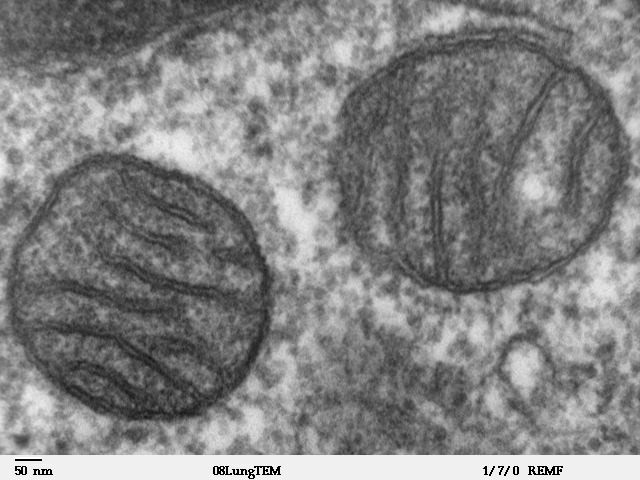Scientists Just Found Cells They Thought Could Never Exist
We may have to rewrite the textbooks.

Two mitochondria. (Photo: Louisa Howard/Public Domain)
On Thursday, scientists made a surprise announcement. From a gut microbe in a chinchilla owned by one of the scientists, they had discovered some extraordinarily unique cells, according to NPR. Specifically, eukaryotic cells that have no mitochondria, but live on anyway.
A type of organelle, mitochondria were long thought to be essential to the life of eukaryotic cells in humans, animals, plants, and most other living things.
Mitochondria generate a huge portion of energy required to keep cells running, in addition to a variety of other functions, including making iron-sulfur bundles for some proteins. And while other parts of eukaryotic cells can pick up some functions of mitochondria, that latter function was thought to be more essential than most.
These cells, however, had somehow found a way to replicate the iron-sulfur function, though scientists aren’t yet sure exactly how.
“This organism managed to adapt in such a way that it could lose an organelle which every textbook will tell you is an essential feature of eukaryotes. That’s pretty amazing,” Mark Van Der Giezen, a researcher in Britain, told NPR. ”It shows you that life is extremely creative in finding a way to eke out an existence.”















Follow us on Twitter to get the latest on the world's hidden wonders.
Like us on Facebook to get the latest on the world's hidden wonders.
Follow us on Twitter Like us on Facebook